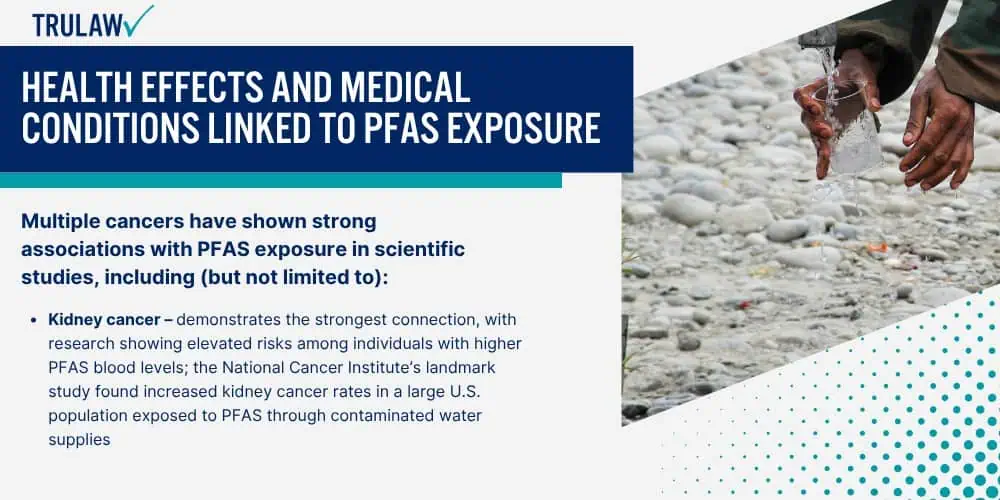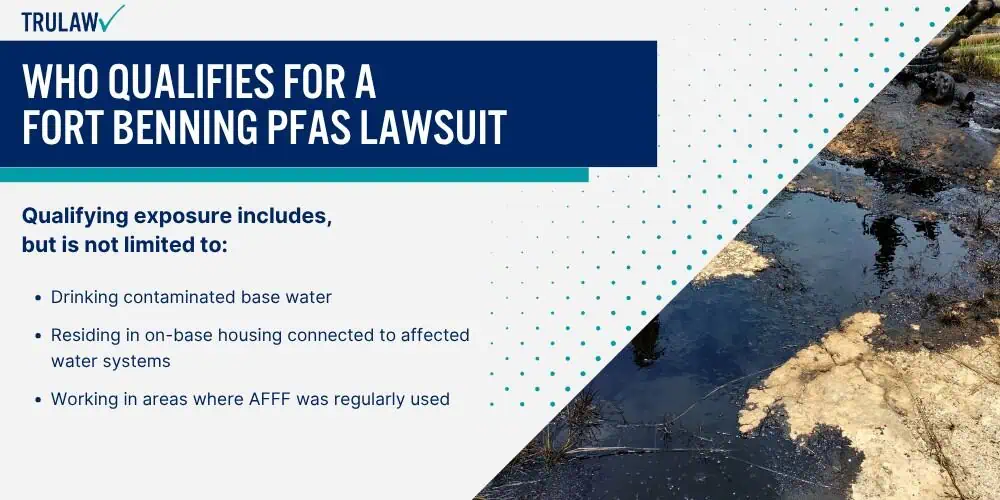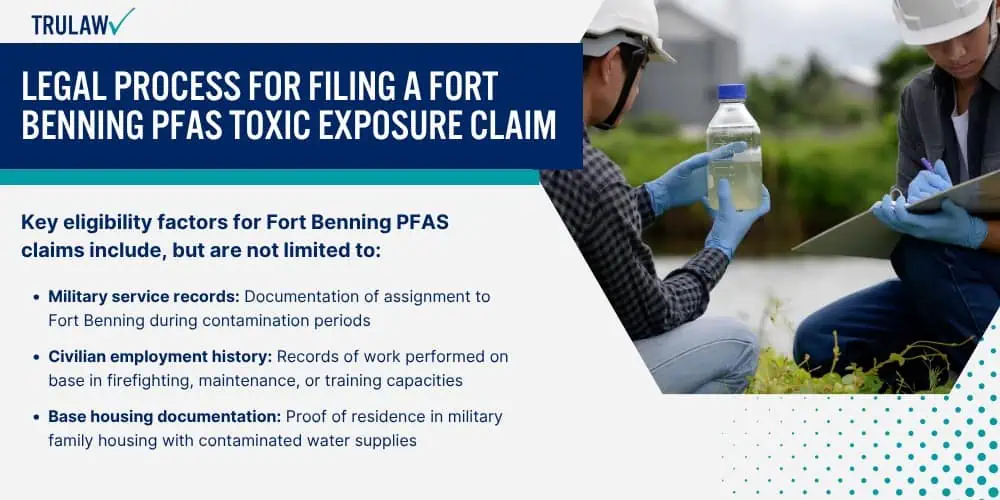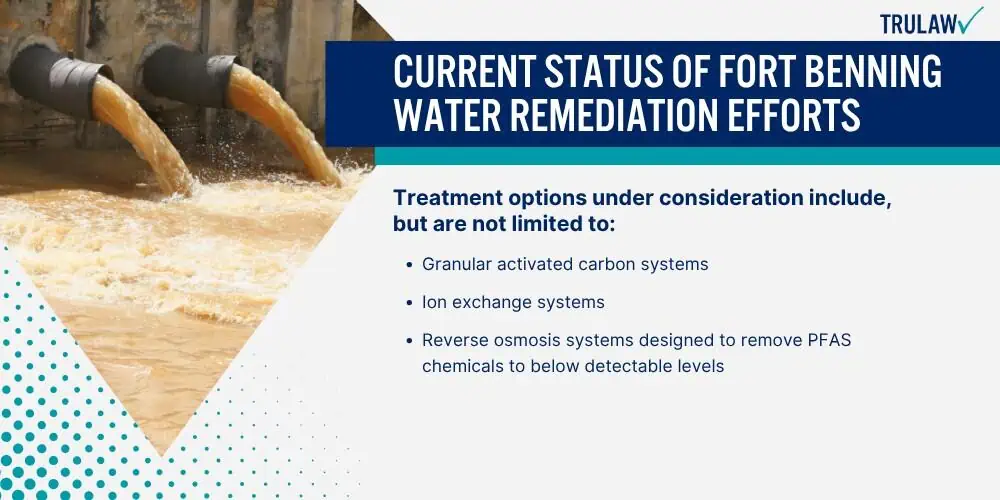Scientific research has established concerning links between PFAS exposure and serious health problems affecting multiple body systems.
These “forever chemicals” accumulate in human tissue over time, potentially causing both immediate and long-term adverse health effects that form the foundation for legal claims against responsible parties.

The National Cancer Institute has conducted extensive studies on PFAS health effects, finding evidence of increased cancer risks and other serious health consequences among exposed populations.
Additionally, the Environmental Working Group has documented widespread PFAS contamination across military installations.
Military personnel and families at Fort Benning face particular concern due to prolonged exposure through contaminated drinking water and environmental contact.
Cancer Risks Associated with PFAS Exposure
Multiple cancers have shown strong associations with PFAS exposure in scientific studies, including (but not limited to):
- Kidney cancer – demonstrates the strongest connection, with research showing elevated risks among individuals with higher PFAS blood levels; the National Cancer Institute’s landmark study found increased kidney cancer rates in a large U.S. population exposed to PFAS through contaminated water supplies
- Testicular cancer – poses particular risk for military personnel; studies of Air Force servicemen revealed elevated blood levels of perfluorooctanesulfonic acid (PFOS) correlated with higher testicular cancer rates, carrying special importance for Fort Benning personnel who used PFAS-containing firefighting foams during training exercises
- Thyroid cancer – research shows mixed but concerning results, with recent studies indicating PFAS exposure may increase thyroid cancer risk by 56% per doubling of PFOS levels in blood
- Bladder cancer – emerging research suggests PFAS exposure may contribute to increased bladder cancer risk, particularly among those with prolonged exposure
- Other cancers – including prostate cancer, liver cancer, and breast cancer, though research continues to establish definitive causal relationships
Non-Cancer Health Conditions from PFAS Contamination
Beyond cancer risks, PFAS exposure affects multiple organ systems and bodily functions. Health conditions linked to PFAS contamination include (but are not limited to):
- Thyroid disease – represents one of the most documented effects, with PFAS chemicals disrupting hormone production and regulation; both hyperthyroidism and hypothyroidism have been observed in exposed populations
- Liver damage – occurs through PFAS accumulation in liver tissue, potentially leading to elevated liver enzymes and decreased function
- Immune system impacts – include reduced vaccine effectiveness and increased susceptibility to infections, as PFAS chemicals suppress normal immune responses
- Cardiovascular effects – include elevated cholesterol levels and increased blood pressure
- Reproductive health problems – including decreased fertility rates, hormonal disruptions, and pregnancy complications
- Ulcerative colitis – a serious inflammatory bowel condition that shows strong associations with PFAS exposure in multiple studies
- Mental health – impacts including depression and anxiety, particularly among those dealing with chronic PFAS-related health conditions
Special Risks for Pregnant Women and Children
Pregnant women and children face heightened vulnerabilities to PFAS exposure due to developing organ systems and increased water consumption during pregnancy and lactation. PFAS chemicals readily cross the placental barrier, exposing developing fetuses to these toxic substances during important developmental windows.
Children experience particular risks, including (but not limited to):
- Developmental delays
- Behavioral problems
- Reduced vaccine response
- Low birth weight
- Decreased immune function
PFAS concentrates in breast milk, creating ongoing exposure risks for nursing infants. Pregnant women consuming contaminated water at Fort Benning faced unknown risks for years – potentially affecting multiple generations. Early childhood exposure may influence lifelong health outcomes, making pediatric medical monitoring especially important for families with Fort Benning connections.









